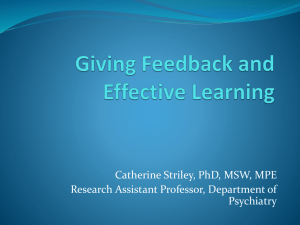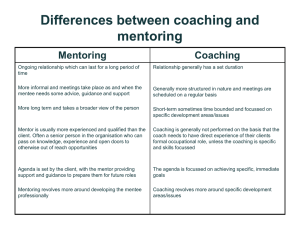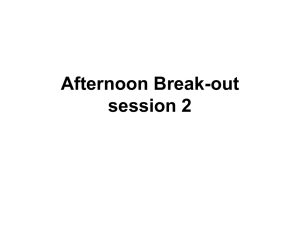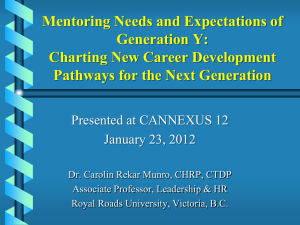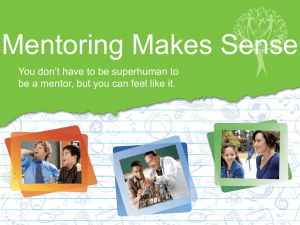An Intorduction to Mentoring Skills
advertisement
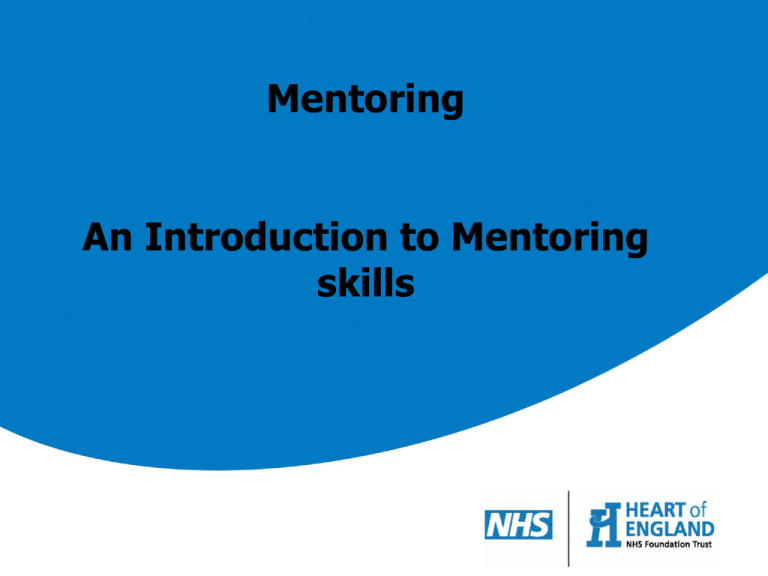
Mentoring An Introduction to Mentoring skills Outcomes By the end of this session you will be able to: •Understand what mentoring is •Have gained an understanding of the responsibilities and key attributes of a mentor •Have knowledge of the four stages of mentoring •A range of tools which will help you with the mentoring process •The process for mentoring within HEFT Exploring Mentoring • Is a process in which an mentor gives support and advice to the mentee • Mentoring as a formal process differs in that it is a ‘contracted and confidential’ relationship between two employees. • Mentoring looks at the ways of enhancing the personal development of the mentee with a view to improving performance • Mentoring looks at ways of enhancing the personal development of the mentee • Increases the mentee’s personal effectiveness • Encourages the mentee to think about career planning/mapping for the future. • Mentoring as part of an organisations talent management schemes Responsibilities in Mentoring Mentee Mentor Characteristics of a good mentor The Four Stages of Mentoring Understanding the Developmental Impacts of Mentoring THE INTELLIGENT CAREER MODEL KNOWING WHY KNOWING WHOM KNOWING HOW Do you have an Intelligent Career? Mentors Toolkit • • • • • • • • • • • • Guidelines Planning for Good Outcomes Mentee’s review of Learning Mentors planning for Action Giving Feedback Receiving Feedback Mentor Profile Mentee Profile Mentoring Contract First Meeting Checklist Mentoring Session Record Mentoring Completion and Evaluation Support / Challenge Model HIGH SUPPORT LOW SUPPORT HIGH COMFORT APATHETIC and LOW ENERGY LOW CHALLENGE ENERGETIC and COMMITED HIGH STRESS HIGH CHALLENGE Mentoring Scenarios The Process for Mentoring at HEFT Questions



